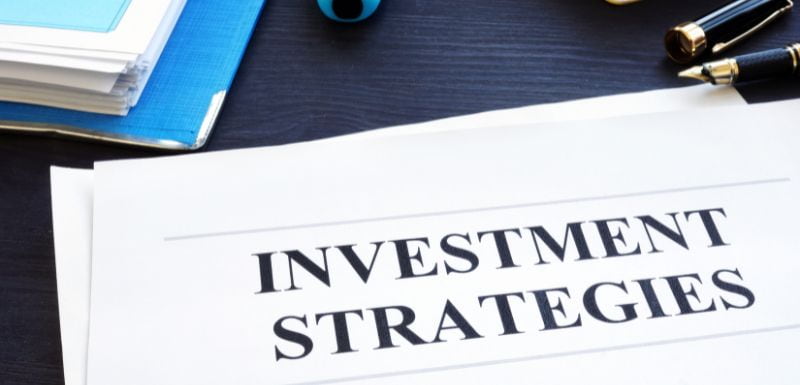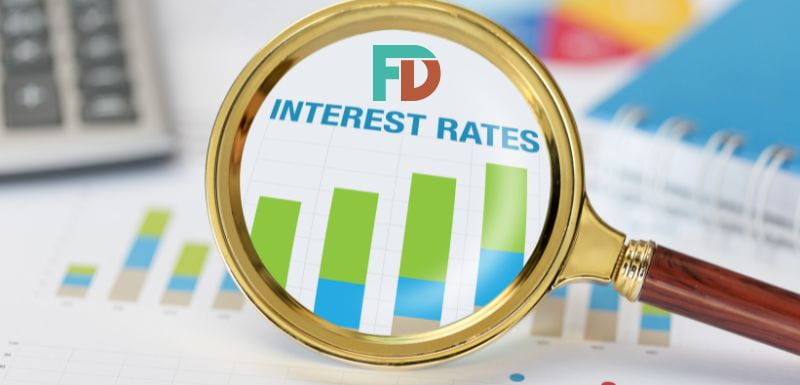9 Personal Finance Mistakes to Avoid

You must have heard the famous phrase: "Knowing is half the battle". It signifies the importance of being informed. The other half is the application of knowledge. Unknowingly, people do make mistakes and learn from them. However, learning from personal finance mistakes can come at a cost and derail or push you back in your financial planning journey. Hence, it is best to be aware of these money mistakes and avoid them so your financial planning journey can be smooth. In this article, we will discuss some common financial mistakes to avoid.
What Are Personal Finance Mistakes?
A personal finance mistake is one that can cause a financial loss or earn lower returns for an individual. These mistakes are related to money matters in terms of how we earn, spend, invest, etc.
Top 9 Personal Finance Mistakes to Avoid
1). Not Maintaining a Balance Between Enjoying the Present and Investing in the Future
Some individuals are at the extreme end of the spending and investing spectrum. Some people spend all or most of their monthly income. As a result, hardly anything or nothing is left for saving and investing towards financial goals. Thus, their future financial security is bleak.
On the other hand, some people invest most of their income towards their financial goals after meeting their essential spends. As a result, hardly anything is left for discretionary spending, and they live a frugal life. Thus, they forgo enjoying the present to secure the future.
The sweet spot is to maintain a balance between enjoying the present and investing for the future. Enjoying the present will keep you happy and motivate you to invest towards securing the future. A budgeting method like the 50/30/20 budgeting can help you maintain this balance.
2). Paying the Minimum Amount Due on Credit Cards
You should use credit cards for convenience and benefits like discounts/cashbacks, reward points, etc. However, some people pay the minimum amount due on their credit cards and carry forward the remaining outstanding balance.
Please note that banks usually charge an interest rate of 3 to 3.5% monthly (36% to 45% annually) on the outstanding balance that is carried forward. It makes credit cards one of the costliest loans in the world. Paying the minimum amount due is one of the top personal finance mistakes. Hence, don’t make the mistake of paying the minimum amount due or carrying forward any outstanding balance. You should always pay the entire credit card monthly bill before or by the due date.
3). Not Building a Credit Score or Paying Attention to It
A credit score is a three-digit number that signifies your creditworthiness. It is an important parameter that financial institutions look at for deciding whether your loan/credit card application should be accepted or rejected. Some banks also offer a lower interest rate and other favourable terms to individuals with a high credit score.
Some individuals either don’t consider building a credit score or don’t pay attention to it. It can prove costly if you face personal finance problems later in life in the form of financial emergencies and want to apply for a loan. Hence, you should work towards building a good credit score the moment you start earning.
Secured credit cards are a good tool for building a good credit score. These credit cards are issued against the security of a fixed deposit. You can use them for your regular essential spends and pay the entire monthly bill before or by the due date. Over a period of time, it will help you build and maintain a good credit score.
4). Not Being Prepared for Financial Contingencies
Life is uncertain. We are exposed to uncertainties like financial emergencies, hospitalisation, or even death. One of the common financial mistakes some people make is not taking these contingencies into account and, hence, are not being financially prepared for them.
These contingencies are not in your control. However, you can cushion their financial impact by being prepared for them. For example, you can build and maintain an emergency fund for unplanned and unexpected short-term financial contingencies. Depending on your requirements, the amount in it can be equivalent to three to twelve months of expenses.
What if you or a family member gets hospitalised? The hospitalisation bill can push you behind in your financial planning journey by a few months or a year(s). Hence, covering all the family members with a health insurance plan is essential. You can go for a family floater plan so that all the family members can share it.
A term life insurance plan can be your family’s financial backup in the event of your untimely demise. The term insurance payout can help the family repay the financial liabilities and fulfill the financial goals in your absence.
5). Diverting Money Meant for Financial Goals Towards Discretionary Expenses
Some people divert money meant for financial goals towards discretionary expenses like going for a vacation or buying a consumer durable or the latest gadget. It is one of the biggest financial mistakes individuals can make. When they do that, they are postponing their financial goals, which is not a good thing to do.
Some people also fund these expenses with debt through credit cards or personal loans. Again, it is not the best option to go for. You should talk to your financial advisor and plan for these goals/expenses separately. It will make sense to include them in your goal list, plan, invest towards them, and then use the redemption/maturity proceeds to fulfill these goals.
6). Doing Tax Planning at the End of the Financial Year
Do you do your tax planning in the last quarter of the financial year when you get a reminder from the payroll/finance team for submitting the investment declaration proofs? Also, do you make certain investments only with the objective of saving taxes? Well, it is not the most appropriate thing to do.
You should always invest towards your goals and select financial products that can give you tax benefits, expected returns and other benefits. Also, you should start your tax planning from the start of the financial year rather than the last quarter. Tax planning should be a part of the overall comprehensive financial planning. Your investment advisor can guide you on how to build an investment portfolio that is tax-efficient and has the potential to give good returns.
7). Stretching Yourself With a Higher Amount of Home Loan Than You Can Afford
Like most other people, do you also prefer to have a bigger house? Well, that is a fair expectation. But do your finances allow you to do that? Are you making the mistake of stretching yourself with a higher amount of home loan than you can afford?
Such a move can make you compromise on your other financial goals, essential and discretionary spends, etc. If the price of the home that you are eyeing is higher than your budget, it is better to wait for some time and accumulate the additional money rather than stretch yourself with a higher home loan. A reasonable home loan EMI will leave room for investing towards financial goals and other spends.
8). Splurging the Windfall Gains Rather Than Investing a Part of It
Did you recently receive your annual bonus, tax refund, or other lumpsum amount? What did you do with it? Some people splurge it on a discretionary expense that is unwanted or can be avoided.
You should judiciously use the lump sum amount. Some portion of it may be used on a discretionary spend that you wanted to. However, a more significant portion of it may be used for things like home loan prepayment or a top-up investment towards financial goals to achieve them before schedule.
9). Living Beyond Your Means
Some people earn a decent monthly income. However, their savings and investments are still next to nil. In a worst-case scenario, some are in debt and struggle with repayment. The reason for landing in such situations is living beyond their means.
In such a situation, following budgeting is important. It helps you allocate your income towards needs, wants, and investments. If you are spending more than required towards needs and/or wants, you can identify those expenses and check where you can cut back. It will help you live within your means.
Have you made any of the above personal finance mistakes discussed in this article? Can you list the 5 or 10 most common financial mistakes that you are making or have made in the past? What is the corrective action that you can take?
How Do These Mistakes Impact Household Finances?
Personal finance mistakes can have an adverse impact on a household’s overall finances. If an individual pays only the minimum amount due for credit card monthly bills, the interest amount can quickly balloon and land the individual in a debt trap. Similarly, if an individual doesn’t maintain an emergency fund, a financial emergency can postpone or derail the financial planning journey.
How Do These Mistakes Impact Our Goals?
Some personal finance mistakes can impact our financial goals adversely. For example, if an individual takes a home loan of a higher amount than they can afford, it will leave little money for investing towards other financial goals. Similarly, if an individual lives beyond their means, it will leave little money for investing towards financial goals. As a result, the individual’s financial goals will either be delayed or will not be met. Hence, it is important to stay clear of personal finance mistakes.
Tips for Building Better Financial Habits
While discussing the personal financial mistakes in the earlier sections, we have also discussed how to overcome them. Here is a quick listing of some tips to build better financial habits.
1. Follow a budgeting method like 50/30/20 budgeting that helps you maintain a balance between enjoying the present and saving and investing for the future.
2. Pay the entire outstanding amount every month for credit cards rather than the minimum amount due.
3. Build and maintain a good credit score for easy access to loans and at favourable terms.
4. Be prepared for financial contingencies by building and maintaining an emergency fund.
5. Plan for discretionary spends by including them in your financial goals list.
6. Tax planning should be a part of the overall financial planning and should start at the start of the financial year rather than the end of the financial year.
7. Your home loan amount should be within the limits that your finances allow.
8. A major portion of windfall gains should be used wisely for debt repayment or investments, while a small portion can be used for discretionary spends.
9. Always live within your means.
Getting the Basics Rights Can Help You Build a Solid Financial Foundation
If you have just started your financial planning journey, you should stay clear of the personal finance mistakes discussed in this article. Even if you are at various stages of your financial planning journey, you should avoid these mistakes so that you don’t suffer any financial setbacks. Following a budget, avoiding unnecessary debt, enjoying the present, saving for the future, etc., can help you build a strong foundation. A qualified and experienced investment expert can guide you with these and help you achieve your financial goals and achieve financial freedom.
FAQs
How Can the 50/30/20 Budgeting Method Help in Maintaining a Balance Between Enjoying the Present and Investing in the Future?
The budgeting method allocates 30% of your monthly income towards discretionary spending so that you can enjoy the present. It allocates 20% of your monthly income towards saving and investing for financial goals like retirement planning and others. Thus, it helps you to enjoy the present and invest towards securing your future.
What Is a Good Credit Score for Getting a Loan?
Most banks consider a CIBIL score of 750 or above as a good credit score for giving a loan. Apart from the credit score, the bank looks at other factors for approving a loan application. Some of these include the borrower’s age, city of residence, profession, income, how much income is going towards servicing existing loans, etc.
Where Should the Emergency Fund Money Be Invested?
The emergency fund money should be available instantly or at the shortest possible notice. You can maintain the emergency fund money in a bank savings account or a liquid fund. Some banks pay a higher interest rate for the balance maintained above a specified amount. You can access the money anytime through an ATM or fund transfer.
Liquid funds invest in short-term securities like money market instruments, which are liquid and where the risk is less. Some liquid funds offer the instant withdrawal facility wherein the money is immediately transferred to the unitholder’s bank account through IMPS. The facility is limited to a specified percentage of the value of units held or a specified amount.
Your Investing Experts
Relevant Articles
Steps to Construct a Great Investment Portfolio – A Guide for Smart Investors
Living in today’s information age has its pros and cons. You have your broker, family members, friends, colleagues, and others giving you friendly investment tips. You also have TV channels, newspapers, magazines, social media and other internet channels bombarding you with investment recommendations/tips.
Investment Strategies: Growth and Value Investing
The stock markets go through various business/economic cycles of ups and downs from time to time. During these phases, various stocks do well based on certain criteria. For example, growth/momentum stocks usually do well during bull markets, and value stocks do well during bear markets. The investment strategy that you follow influences your returns. In this article, we will understand the various investment strategies and which one you should follow to maximise your portfolio returns.
Banks Have Raised FD Rates in June: Should You Invest or Stick to Mutual Funds?
Many banks have raised interest rates on fixed deposits in May and June 2024. Some small finance banks (SFBs) are offering up to 9% p.a. on their fixed deposits. In this article, we will discuss the net return on your fixed deposits after tax and inflation and whether you should consider investing in fixed deposits or mutual funds.



